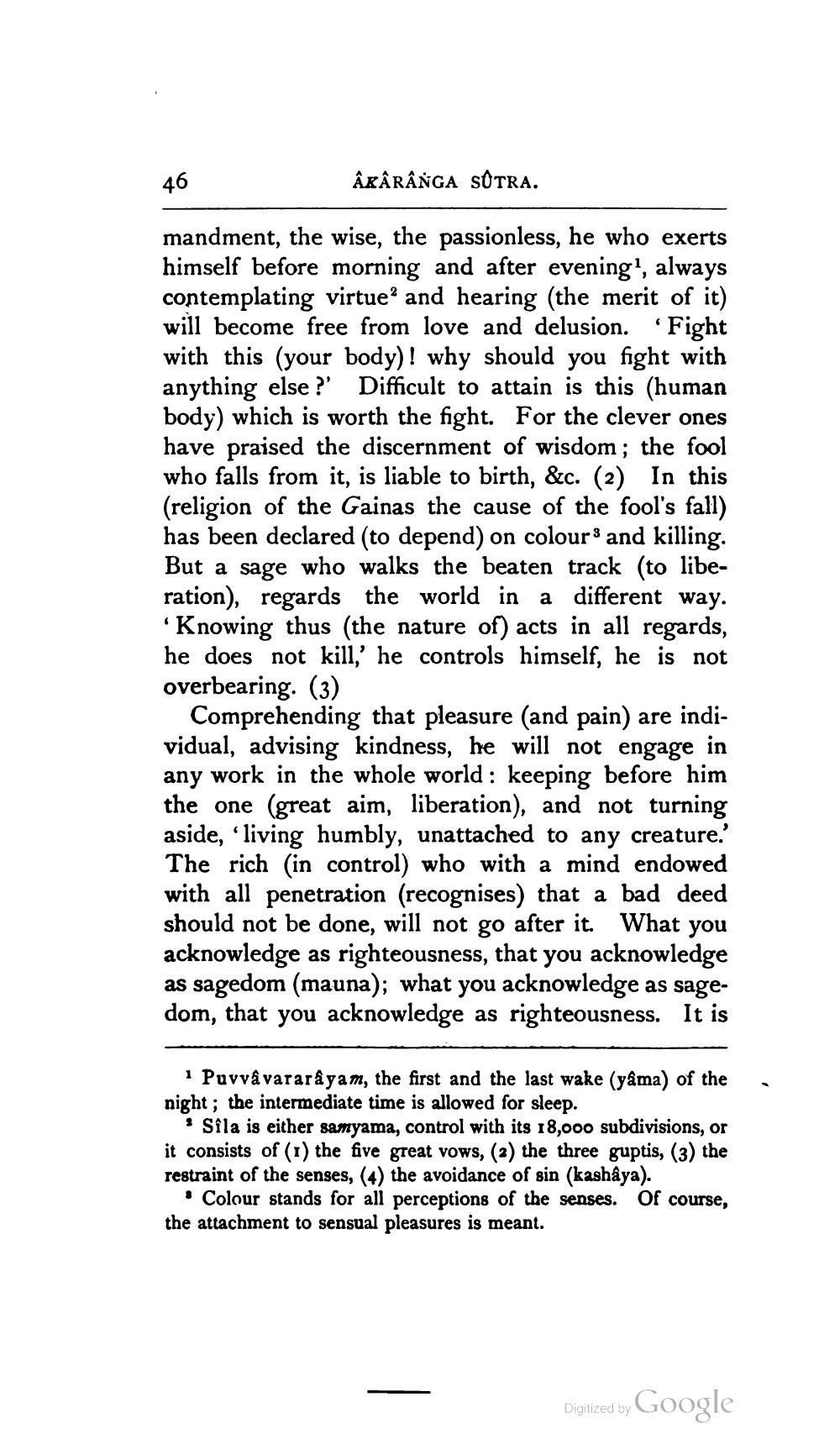________________
46
ÂRÂRÂNGA SOTRA.
mandment, the wise, the passionless, he who exerts himself before morning and after evening', always contemplating virtue and hearing (the merit of it) will become free from love and delusion. 'Fight with this (your body)! why should you fight with anything else ?' Difficult to attain is this (human body) which is worth the fight. For the clever ones have praised the discernment of wisdom; the fool who falls from it, is liable to birth, &c. (2) In this (religion of the Gainas the cause of the fool's fall) has been declared (to depend) on colours and killing. But a sage who walks the beaten track (to liberation), regards the world in a different way.
Knowing thus (the nature of) acts in all regards, he does not kill,' he controls himself, he is not overbearing. (3)
Comprehending that pleasure (and pain) are individual, advising kindness, he will not engage in any work in the whole world : keeping before him the one (great aim, liberation), and not turning aside, living humbly, unattached to any creature.' The rich in control) who with a mind endowed with all penetration (recognises) that a bad deed should not be done, will not go after it. What you acknowledge as righteousness, that you acknowledge as sagedom (mauna); what you acknowledge as sagedom, that you acknowledge as righteousness. It is
1 Puvvå vararåyam, the first and the last wake (yama) of the night; the intermediate time is allowed for sleep.
Sila is either samyama, control with its 18,000 subdivisions, or it consists of (1) the five great vows, (2) the three guptis, (3) the restraint of the senses, (4) the avoidance of sin (kashaya).
• Colour stands for all perceptions of the senses. Of course, the attachment to sensual pleasures is meant.
Digitized by Google




